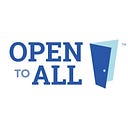The ID Divide and Its Impact on Marginalized Groups
How Companies Can Support Employees and Applicants
To many, the use of an ID is commonplace in everyday life. Unless you’re one of the roughly 11% of adults — nearly 26 million people — without a government-issued ID, you don’t realize how ubiquitous they’ve become. Lacking official identification can prohibit someone from obtaining medical care, opening a bank account, finding employment, securing housing, and exercising their right to vote. This unequal impact is known as the ID Divide.
According to the 2020 American National Election Studies, about 12% of all adults in America do not have a valid driver’s license. This figure jumps to 20–23% of multiracial, Black and Hispanic adults lacking a valid license, illustrating the disproportionate impact of identification requirements on marginalized populations.
Logan Casey, Senior Policy Researcher and Advisor for Movement Advancement Project develops highly detailed Equality Maps highlighting laws and policies, including on driver’s licenses and name changes, in all 50 states. Casey recently briefed Open to All’s corporate partners on the ID Divide highlighting data that is now available in the report published on November 29 entitled, The ID Divide: How Barriers to ID Impact Different Communities and Affect Everyone, which details the ways that barriers to obtaining an accurate ID significantly impact people’s ability to move through their daily lives and how these obstacles impact specific communities.
Identification requirements impact both staff and customers. Employees often must present identification when applying for a job, completing a background check, obtaining an employee ID or name tag, completing HR records, and signing up for payroll. Customers are also commonly asked to produce identification before entering an establishment, purchasing age-restricted items, confirming payment, and picking up online orders. While these policies may seem commonplace, we must consider how difficult these requirements are to fulfill for those who cannot present an accurate ID.
Many challenges and limitations related to the ID Divide can be attributed to systemic level failures, including burdensome requirements, needlessly expensive costs, limited accessibility, discriminatory practices, and a generally confusing patchwork of policies. If we look at cost alone, driver’s licenses range in price from $10 to $89. This averages to over $37, or more than four hours of work at minimum wage — not including time away from work to obtain the ID. This not only outlines the financial burden of acquiring an ID, but also the variation that occurs across state lines.
These institutional shortcomings are not mutually exclusive, and they often reinforce one another. Take, for example, an individual whose ID does not accurately reflect the name or gender they present to the world. If they are forced to show identification, they could be subjected to discrimination, harassment, or even violence.
Fortunately, there are many opportunities for employers to combat the ID Divide. Companies should carefully examine their current requirements for potential employees, current staff members, and customers. After evaluation, they should devise a clear, alternative plan when someone is unable to present identification. It is critical to train staff on these strategies and how to manage such circumstances. Businesses may also consider providing employees with financial support to subsidize the expense of a new or updated ID. To better serve their communities, companies can partner with legal aid clinics offering specialized ID assistance programs.
No one should struggle to secure basic needs, access essential services, perform civic duties, or engage in day-to-day activities. Limiting ID-related restrictions and expanding access to affirming IDs are critical steps toward building workplaces and retail environments where everyone can participate and thrive.
